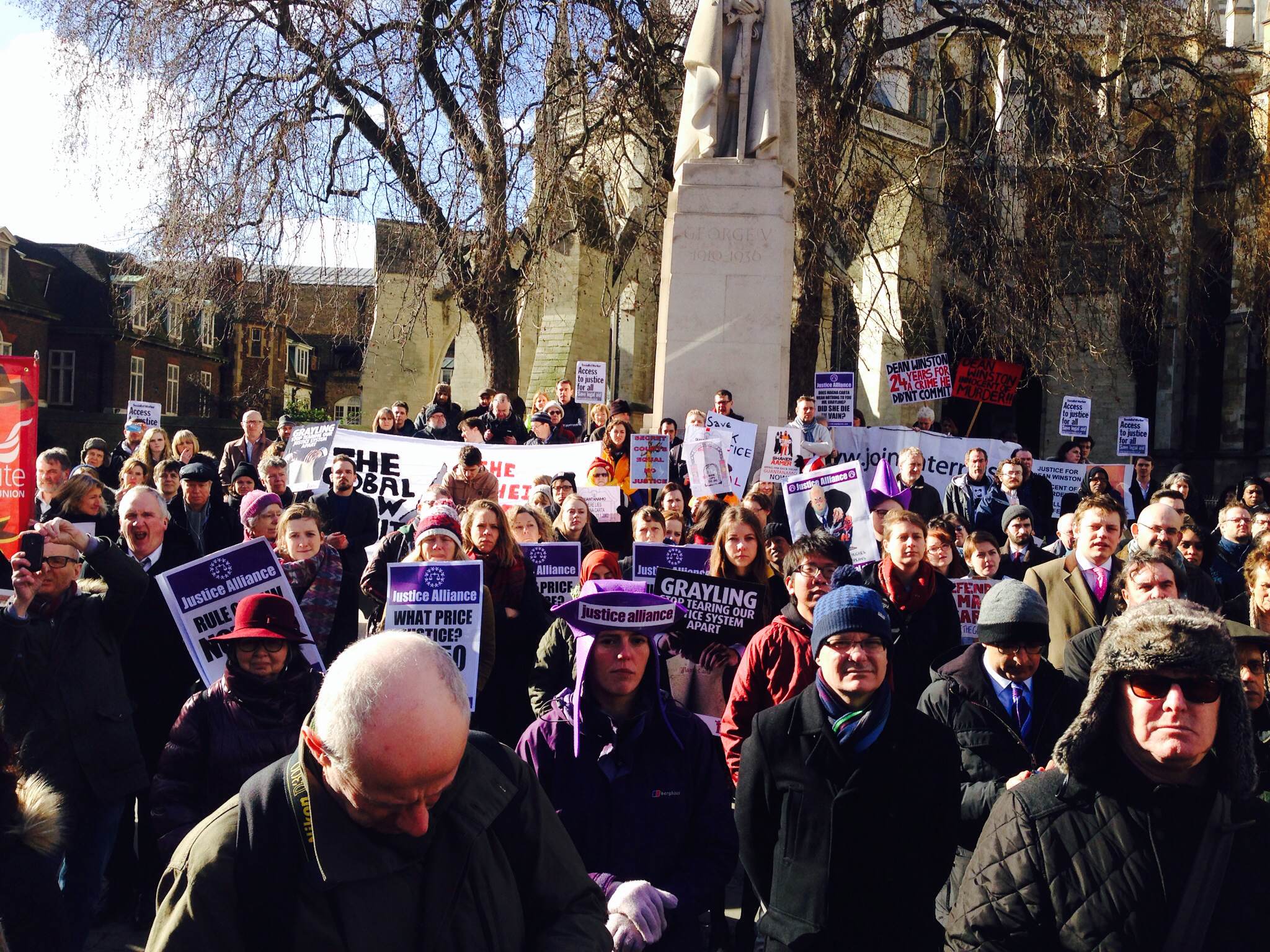[contextly_auto_sidebar id=”v530mx2ZbhuSwLdoaGVW3uoRSXJMTjnj”]
 The Low Commission on the future of advice and legal support launched its follow-up report at the House of Commons earlier this week, calling for the government to develop a national advice strategy. Lord Colin Low of Dalston, the chair of the independent Commission, said he hoped to get cross-party support for the key recommendations from the report so that the next government can take steps to tackle the ‘advice deficit’.
The Low Commission on the future of advice and legal support launched its follow-up report at the House of Commons earlier this week, calling for the government to develop a national advice strategy. Lord Colin Low of Dalston, the chair of the independent Commission, said he hoped to get cross-party support for the key recommendations from the report so that the next government can take steps to tackle the ‘advice deficit’.
- You can read both reports here
Addressing an audience of parliamentarians and lawyers, Lord Low said ‘the advice deficit has widened significantly’ since the Commission’s first report in January 2014 due to the impact of funding reforms in the Legal Aid, Sentencing and Punishment of Offenders Act 2012 (‘LASPO’). Lord Low referred to the falling numbers of clients helped by Citizens Advice Bureaux, the rise in unrepresented parties in the family courts and the increased demand for food banks which is overwhelmingly driven by ‘failures, delays and sanctions in the benefits system’.
The first report by the Low Commission, Tackling the Advice Deficit, recommended that the next government develop a national strategy for advice and legal support for 2015-2020, a national advice and legal support fund of £50m per year, greater public legal education and the co-production by local authorities and advice agencies of local advice and legal support plans.
The key recommendations of the follow-up report, Getting it Right in Social Welfare Law, include:
- The Ministry of Justice should bring forward the review of LASPO;
- The Ministry of Justice should undertake a cost-benefit analysis of funding independent duty specialist advice schemes;
- The Department for Work and Pensions should be required to make a strategic contribution to the national advice and legal support fund;
- Health and social care commissioners should always ensure that their plans include social welfare advice and legal support provision;
- Local authorities should work with the advice sector to co-produce ten-year local advice and legal support plans; and
- The next government should develop a national strategy for advice and legal support.
Lord Low spoke about the ‘great deal of evidence which suggests that early access to legal advice saves the state money’. He also referred to the findings of research by Young Legal Aid Lawyers (‘YLAL’) concerning the impact of legal aid cuts on MPs’ advice surgeries. YLAL’s report, Nowhere else to turn, found that 38.4% of casework for MPs’ constituents involved legal issues and 71.1% of MPs said they needed to refer constituents for legal advice.
However, after the implementation of LASPO, 86% of respondents to YLAL’s follow-up report noted an increase in demand for advice, mostly in relation to housing, debt and welfare benefits, and over 50% indicated greater difficulty in locating advice services for their constituents. MPs responding to the survey reported that they were ‘running out of options’ and concerned about the future of advice.
Lord Low expressed hope that the common challenges faced by MPs of all parties ‘will be a spur to cross-party action during the next Parliament to find solutions to the funding of social welfare law’. Current and former members of the three main parties’ justice teams then addressed the meeting: Simon Hughes for the Liberal Democrats, Dominic Grieve for the Conservatives and Andy Slaughter for Labour.
The Liberal Democrat Justice Minister assured those present that the report by the Low Commission, which contains many proposals his party ‘would instinctively support’, would be fed into the manifesto-drafting process. Hughes said that he personally supports the focus on preventing disputes in the first place, ensuring state bodies get decisions right first time and improved public information and education regarding the justice system.
Hughes also repeated the misleading Ministry of Justice line about the country having ‘one of the most generous legal aid schemes in the world’, but stated that given the macroeconomic position inherited by the coalition government, this budget could not be exempted from cuts. The challenge for all parties will be ‘to find ways of making the money that there is go further’.
Dominic Grieve commended the Commission on ‘a remarkable and interesting report’ and said that from his previous role as Attorney General championing pro bono, he has ‘no doubt that demand for advice remains high and in many cases is unmet need’. As a result, ‘there is a need to think creatively about what we can do to address that’. Although he could not speak for his party, Grieve said that he personally believes ‘there is a lot in this report of real value’. Grieve expressed hope that politicians ‘can make progress on a cross-party basis’ if they work together in this area.
Finally, the Shadow Justice Minister Andy Slaughter spoke about the ‘very bleak’ situation in the advice sector but praised the pragmatic and realistic recommendations made by Lord Low and his fellow commissioners. Slaughter contrasted this with the stance taken by the Green Party in an interview with the Justice Gap, by promising to reverse legal aid cuts while admitting they do not expect to be in power to make such a decision.
Slaughter said the report is ‘a superb piece of work’ and referred to his party’s recent announcements, including the promise not to implement two-tier contracts for criminal legal aid which are the subject of an ongoing legal challenge. He also disagreed that the LASPO exceptional funding scheme and domestic violence eligibility criteria for legal aid are working as the government intended. Labour ‘100% signs up’ to the need to review LASPO urgently, as well as what is said on public education.
In Slaughter’s view, there has been a ‘destructive and fragmentary process over the last five years’ in which the ‘cumulative effect [on the justice system] has been worse than individual cuts’ and there is now a ‘crisis’ in justice. It remains to be seen whether any of the parties’ election manifestos will provide any grounds for optimism in the legal aid and advice sector.







